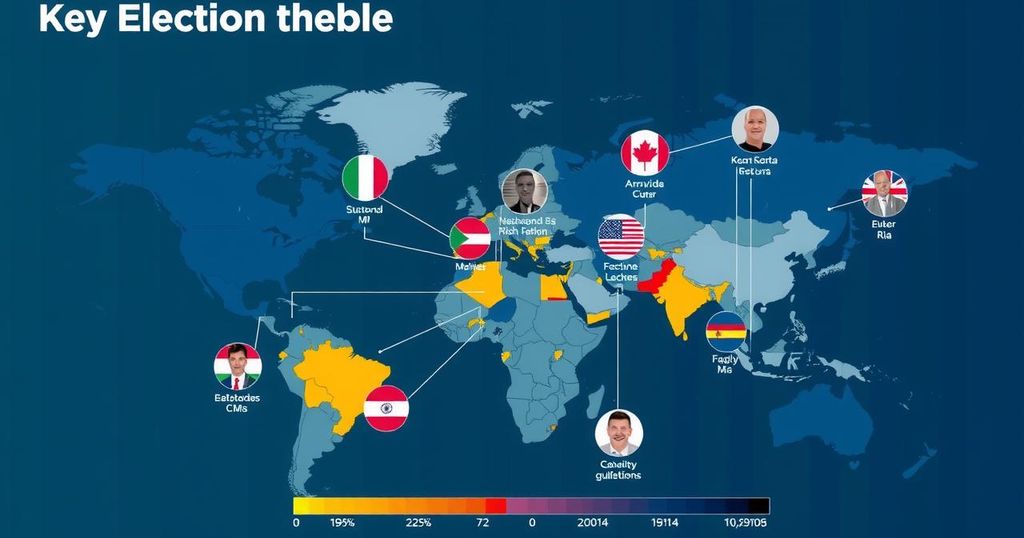The 2024 elections across the globe led to momentous political shifts, with Donald Trump’s return in the U.S. influencing international politics. India faced challenges to Modi’s leadership, while Mexico’s Claudia Sheinbaum became the first woman president. South Africa’s ANC lost its majority, and Japan’s LDP saw a rare electoral setback. In Pakistan, Imran Khan’s political turmoil continued, alongside significant gains for Labour in the UK and unexpected outcomes in France. Senegal exhibited rising decolonial movements, and Romania’s upcoming election has EU implications.
The political landscape of 2024 has been defined by significant elections across the globe, witnessing over one billion individuals participating in the democratic process. The United States saw the controversial return of Donald Trump, signaling a drastic shift in both national and international dynamics. In India, Prime Minister Narendra Modi faced an unprecedented challenge, losing his parliamentary majority. Meanwhile, Mexico elected its first female president, Claudia Sheinbaum, who transcended global trends to bolster governance against a backdrop of increasing discontent with incumbents. South Africa experienced a reconfiguration of its political alliances, creating a unity government that redefined power sharing. Japan’s Liberal Democratic Party saw a rare loss of majority yet remains influential within the parliament. In Pakistan, Imran Khan’s ousting led to turbulent elections accused of manipulation, highlighting a deep division in the nation’s political fabric. The UK Labour Party enjoyed a momentous victory, yet faces growing resistance from the Conservatives. France’s snap elections unveiled a complex political reality, culminating in an uneasy coalition, while Senegal’s elections reflected a rising tide of decolonial sentiment across Africa. Romania’s impending presidential election also bears significance, positioning it as a pivotal moment for the European Union.
The Global Hot List captures the pivotal elections of 2024, showcasing key results that have reshaped political paradigms in various nations. With over a billion ballots cast worldwide, each election highlighted both local and global political sentiments, elucidating the challenges faced by incumbents and the aspirations of opposition parties. As nations navigate the complexities of governance amid changing voter preferences, the outcomes of these elections are likely to reverberate through international politics for years to come.
The elections of 2024 underscore a crucial turning point in global politics, revealing the fragility of incumbency and the rising momentum of opposition forces. From Trump’s return to the political seat in the U.S. to groundbreaking victories in Mexico and significant shifts in established political traditions in countries like South Africa and Japan, the year has illuminated the diverse political narratives shaping democratic engagement around the world. As the world observes these developments, the implications for governance and international relations remain profound and ongoing.
Original Source: www.semafor.com






